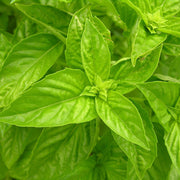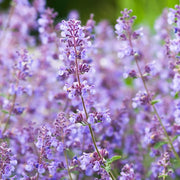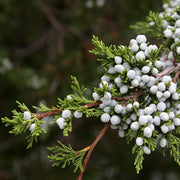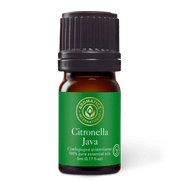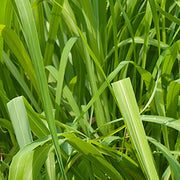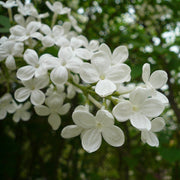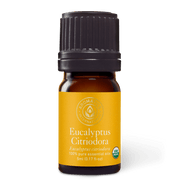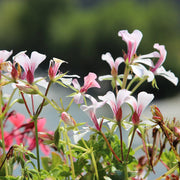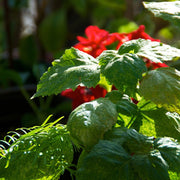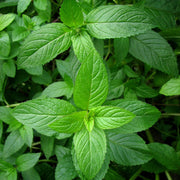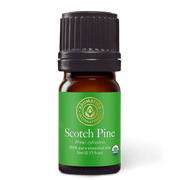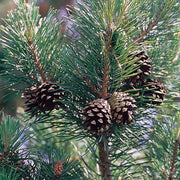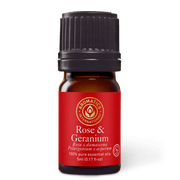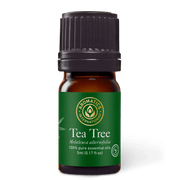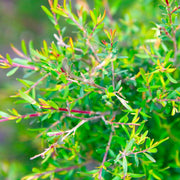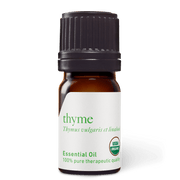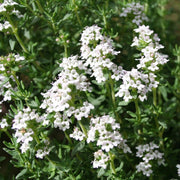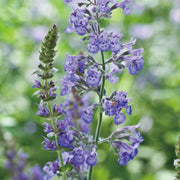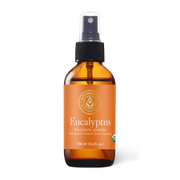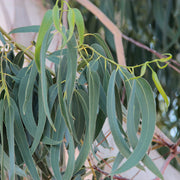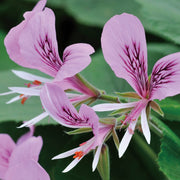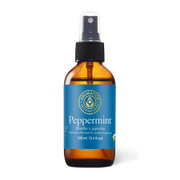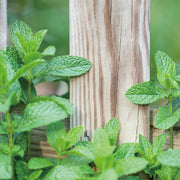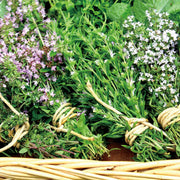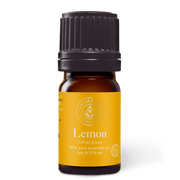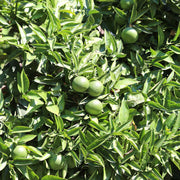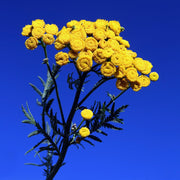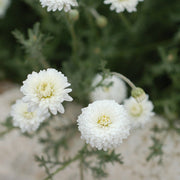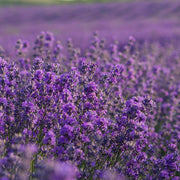When we need to send those pesky bugs a clear message they’re not invited to our party, we like to use essential oils to make natural bug repellent. This post will tell you why we like natural bug sprays, which essential oils to use, safety considerations to be aware of, and (of course!) some great essential oil blend recipes to make DIY natural bug repellent that smells amazing!
Why use natural bug repellent?
When we need to protect ourselves from itchy bites, stings, and insect-borne illnesses, natural bug repellent offers a safer alternative to the chemical-laden bug repellents on the market.
Here’s what we like about using natural bug repellents:
- Non-toxic ingredients are safer on your clothing and skin
- No scary chemicals to inhale, compromise your immunity, or stir up your allergies
- They work!
How do natural bug repellents work?
Plants have natural defenses to protect themselves from harmful invaders like fungus, bacteria, and insects.
The naturally occurring oils contained in the leaves, stems, bark, wood, and flowers of some plants help to keep the plants healthy. These are the essential oils!
These oils also have potent properties that we can use to our advantage. When used safely and applied properly, essential oils can repel insects just as effectively as any commercial insect repellent.

Here’s how we can use them:
- Repellent spray for your clothing or skin
- Diffuser to repel insects in an entire room or space
- DIY beeswax candles to repel pests from your outdoor areas
- Lotion for a diluted skin-safe application
You can get creative with your own ways to defend your summer fun from insects. We’ve included a few recipes at the end to help get you started!
Which essential oils to use in natural bug repellent
If you want to use an essential oil bug repellent, you need to know which oils are the most helpful.
By utilizing these essential oil, either topically or diffused, you can create an environment that insects find uninviting, providing a natural and aromatic solution for repelling them.

Outdoor Bug Repellent Diffuser Blend
Here are 15 of our favorite oils for discouraging insects!
1. Basil Oil
Latin name: (Ocimum basilicum ct Linalool)
Basil essential oil contains varying percentages of eugenol and linalool. These compounds emit a strong aroma that acts as a natural insect repellent, making it difficult for insects to approach or land on treated surfaces. It interferes with their sensory receptors, making basil essential oil a safe and effective choice for repelling mosquitoes, dust mites, and other pests.
2. Catnip Oil
Latin name: (Nepeta cataria)
Catnip essential oil contains nepetalactone, a compound that acts as a strong deterrent for insects. The distinct aroma emitted by catnip essential oil repels bees, wasps, fleas, and mosquitoes.
3. Cedarwood Oil
Latin name: (Juniperus virginiana)
Cedarwood essential oil contains compounds such as cedrol and thujopsene, which emit a strong woody aroma that repels insects. The scent of cedarwood essential oil is particularly effective in deterring mosquitoes, ants, and many others. That makes it an excellent for a mosquito repellent or an all purpose essential oil bug spray!
4. Citronella Java Oil
Latin name: (Cymbopogon winterianus)
Citronella Java essential oil contains citronellal and geraniol, compounds that emit a distinct citrusy aroma that repels insects effectively. The scent of citronella oil acts as a powerful deterrent, particularly against mosquitoes and other flying pests, but also biting insects like ticks and spiders.
5. Clove Bud Oil
Latin name: (Eugenia caryophyllata)
Clove bud essential oil contains eugenol, a compound that emits a strong and distinctive aroma detested by insects. The scent of clove oil acts as a powerful deterrent, particularly against mosquitoes, bees, and wasps.
6. Eucalyptus Citriodora Oil
Latin name: (Eucalyptus citriodora)
Eucalyptus Citriodora essential oil (also known as lemon eucalyptus oil) contains citronellal, a compound that emits a refreshing lemon-like scent, which insects find unpleasant. The aroma of eucalyptus citriodora essential oil has strong insect repellent properties, but lemon eucalyptus oil also works as a natural insecticide.
7. Geranium Oil
Latin name: (Pelargonium graveolens var roseum)
Geranium essential oil contains citronellol and geraniol compounds, which give it a floral and slightly rosy aroma that repels insects effectively. The distinctive scent of geranium essential oil acts as a strong deterrent, particularly against mosquitoes, ticks, and other bothersome pests.
8. Lavender Oil
Latin name: (Lavandula angustifolia)
Lavender oil, known for its calming properties, also doubles as a natural insect repellent. It contains compounds such as linalool and linalyl acetate, which emit a pleasant floral aroma that repels insects. The scent of lavender oil acts as a deterrent for mosquitoes, flies, and other unwanted pests.
9. Lemongrass Oil
Latin name: (Cymbopogon flexuosus)
Lemongrass essential oil is a powerful insect repellent, recognized for its natural attributes. It contains neral and geraniol, compounds that emit a strong citrusy and refreshing aroma that repels insects effectively. The scent of lemongrass essential oil acts as a potent deterrent, particularly against mosquitoes, flies, bees, and wasps.
10. Patchouli Oil
Latin name: (Pogostemon cablin)
Patchouli essential oil serves as a natural insect repellent, renowned for its distinctive properties. It contains compounds such as patchoulol, which emit a unique earthy and musky aroma that repels insects. The scent of patchouli essential oil acts as a powerful deterrent, particularly against mosquitoes, ants, and other unwanted pests.
11. Peppermint Oil
Latin name: (Mentha x piperita)
Peppermint essential oil is an effective and refreshing insect repellent, known for its natural qualities. It contains menthol, a compound that emits a strong minty aroma that repels insects. The scent of peppermint oil acts as a potent deterrent, especially against flying pests.
12. Scotch Pine Oil
Latin name: (Pinus sylvestris)
Scotch pine essential oil is a natural insect repellent with its own unique characteristics. It contains compounds such as alpha-pinene and beta-pinene, which emit a refreshing woody and pine-like aroma that repels insects effectively. Scotch pine works best against lice and mosquitos.
13. Rose Geranium Oil
Latin name: (Rosa x damascena/pelargonium x asperum)
Rose geranium essential oil is a versatile insect repellent known for its distinct properties. It contains compounds such as citronellol and geraniol, which emit a floral and rosy aroma that repels insects effectively. The scent of rose geranium essential oil acts as a potent deterrent, particularly against mosquitoes, ticks, and other pests.
14. Tea Tree Oil
Latin name: (Melaleuca alternifolia)
Tea tree essential oil is a powerful insect repellent with its own unique attributes. It contains compounds such as terpinen-4-ol, which emit a refreshing and medicinal aroma that repels insects effectively. Tea tree oil is best used to deter fleas, fruit flies, lice, mosquitos, and ticks, but has the added benefit of being an anti-parasitic!
15. Thyme ct Linalool Oil
Latin name: (Thymus vulgaris ct. linalool)
Thyme linalool essential oil is a natural insect repellent with its own distinctive qualities. It contains compounds such as linalool, which emit a fresh and herbaceous aroma that repels insects effectively. The scent of thyme linalool essential oil is especially effective against chiggers, flies, lice, mosquitos, and ticks.
16. Vetiver Oil
Latin name: (Vetiveria zizanioides)
Vetiver essential oil is a potent insect repellent known for its natural properties. It contains compounds such as khusimol, which emit a deep, earthy, and woody aroma that repels insects effectively. Vetiver is less all-purpose than other essential oils as an effective insect repellent, but works well to deter mosquitos.

How to make DIY bug spray with hydrosols
Sometimes, you might not want to use essential oils in your natural bug spray.
Maybe the essential oils are too strong for your nose, or you’re going to blend for children or pets and don’t want something so highly concentrated. (We’ll talk more about that below, in the Essential Oil Safety section.)
For now, allow us to introduce you to hydrosols!
What’s a hydrosol?
When an aromatic plant is steam distilled, it’s placed in a still with water. Then the still is heated. The heat releases the plant’s essential oil . . . and the water itself becomes infused with therapeutic, aromatic properties. The steam becomes the hydrosol!
Hydrosols are very gentle, and yet rich with therapeutic properties. They are just right when we don’t want to use essential oils!
Here are a few hydrosols we love for natural bug repellent recipes!
- Catnip Hydrosol (Nepeta cataria)
- Eucalyptus Hydrosol (Eucalyptus globulus)
- Rose Geranium Hydrosol (Pelargonium spp)
- Lavender Hydrosol (Lavandula angustifolia)
- Peppermint Hydrosol (Mentha × piperita)
- Thyme Hydrosol (Thymus vulgaris)
Here’s how to use hydrosols in your natural bug repellent:
- Mix a couple of hydrosols from the list above in a (PET) plastic or glass bottle with an atomizer for a repellent spray that can go with you.
- Boost your hydrosol with a few drops of essential oil. Try our Solubol dispersant to help dissolve the oils into the hydrosol, and keep your blend skin safe. Follow the recommended dilution ratios here.
Shop Essential Oils for Bugs
When we need to protect ourselves from itchy bites, stings, and insect-borne illnesses, natural bug repellent offers a safer alternative to the chemical-laden bug repellents on the market. Shop this collection of essential oils for bugs, and take back your summer!
Essential oil safety
This part is important!
Let’s go over a few safety considerations for using essential oils on your skin, for children, and for pets.
Skin
Some essential oils might cause skin irritation, sensitization, or phototoxic reactions. Look for dilution recommendations, potential phototoxicity, and medication contraindications when you’re purchasing your oils.
- Use oils that may cause skin irritation or sensitization in low dilutions. 6 drops in 1 oz. of carrier is a 1% dilution, and that’s a good place to start.
- Phototoxic oils should be highly diluted if applied to skin exposed to sunlight. A “phototoxic” oil can cause skin reactions if it’s applied topically, and then that skin is exposed to sunlight or a tanning bed. Many citrus essential oils are phototoxic.
You can find safe dilution ratios in the “Safety & Shelf Life” sections of the product pages. For easy reference, here are some safe drop counts for the following phototoxic oils:
- Lemon Oil (Citrus limon) — Use 12 drops or less per 1 oz of carrier
- Bergamot Oil (Citrus bergamia) — Use 1 or 2 drops or less per 1 oz of carrier (Bergamot is VERY phototoxic!)
- Grapefruit Oil (Citrus paradisi) — Use 24 drops or less per 1 oz of carrier
- Lime Oil (cold-pressed) (Citrus aurantifolia) — Use 4 drops or less per 1 oz of carrier.
(Please note that only cold-pressed lime is phototoxic. Our lime essential oil is steam distilled, which removes the phototoxic components. But be sure to check the production method of your lime oil, and be careful with any lime essential oil that has been cold pressed!)
Using essential oils for children
Little kids are . . . well . . . little!
Their systems are smaller and more responsive than grown-ups’.
When we’re using essential oils for children, we like to be very selective about using gentle essential oils. We also reduce the dilution ratios, so kids don’t get overwhelmed with too much essential oil.
We suggest using essential oils for children who are at least five years old. For younger kids and babies, we like to stick with hydrosols.
A few of our favorite essential oils to reduce bug bites for children are:
- Tea Tree Oil (Melaleuca alternifolia)
- Eucalyptus Citriodora Oil (Eucalyptus citriodora)
- Cedarwood Oil (Juniperus virginiana)
Start with a 1% dilution, which is 6 drops of essential oil in 1 oz. of carrier.
Protect your pets from bugs!

We all want to protect our furry friends from pests!
However, we can’t recommend using essential oils for animals. Research is still ongoing in that area.
But there’s good news! You can use hydrosols for dogs and cats!
When using hydrosols for your beloved pets, less is more. Use them in low dilutions, as animals are far more sensitive to their effects than humans.
Here are a few tips!
Tips for using hydrosols for pets:
- Use hydrosols with caution. Some animals react differently than others.
- Let your dog or cat choose the hydrosols by smelling them first. If they pull away and react like they do not like the smell, choose a different hydrosol.
- Start small! Use just a few sprays, and observe your pet’s behavior to ensure they don’t have any adverse reactions.
- Try using the hydrosols around the animal (instead of on the animal) to give your pet the ability to get away from the hydrosol if it is bothering them.
- Making a natural bug repellent diffuser blend or a homemade citronella candle is an excellent option if your pet doesn’t like the hydrosols. Again, be sure your pet is free to leave the area if the scent gets overwhelming for them.
Which hydrosols are safe for pets?

We like these hydrosols to help repel mosquitoes, fleas, and ticks for our dogs and cats:
- Catnip Hydrosol (Nepeta cataria) (Cats LOVE this hydrosol! Just a spritz or two is enough to send them into kitty heaven!)
- Peppermint Hydrosol (Mentha × piperita)
- Lavender Hydrosol (Lavandula angustifolia)
NOTE: Do not use hydrosols on dogs or cats younger than 10 weeks old.
When you get bit: Natural bug bite relief

In spite of our best efforts, sometimes bug bites happen.
Thankfully, many essential oils and hydrosols can calm itchiness, and restore a feeling of cool comfort around painful bites and stings!
These are our favorites:
- Blue Tansy Oil (Tanacetum annuum)
- Chamomile Roman Oil (Chamaemelum nobile)
- Helichrysum Italicum Oil (Croatia) (Helichrysum italicum)
- Lavender Oil (Lavandula angustifolia)
- Peppermint Oil (Mentha × piperita)
- Rose and Geranium Oil (Rosa × damascena/pelargonium × asperum)
- Spike Lavender Oil (Lavandula latifolia)
- Tea Tree Oil (Melaleuca alternifolia)
Add to a carrier oil
Add any of these oils (or several, to enhance the effect) to a carrier oil of your choice such as aloe vera gel, coconut oil, jojoba oil, marula oil, or unscented lotion.
Try adding 6 drops of some of these oils to 10 ml of jojoba in a roller bottle. Now you have a portable applicator that can go anywhere with you to ease the itch!
Five natural bug repellent recipes
Save your summer activities from aggravating insects with your own DIY natural bug repellent with essential oils! Below are some recipes to help you get started, but don’t hesitate to try your own blends. (If you do, let us know what they are!)
And remember, some essential oils can leave oily spots or stains on clothing, so use your best judgment when spraying them on your clothes. We suggest trying them on dark-colored clothing first.
- Backcountry Bug Repellent Spray
- Bug Repellent Diffuser Blend
- DIY Bug Repellent Candle
- Eucalyptus Bug Spray
- Stop the Itch Spray
Keep these blends around for a great summer!
You may have to apply natural bug repellents more often than chemical versions.
It’s worth it!
Bugs will think you smell terrible . . . but people will think you smell great!







